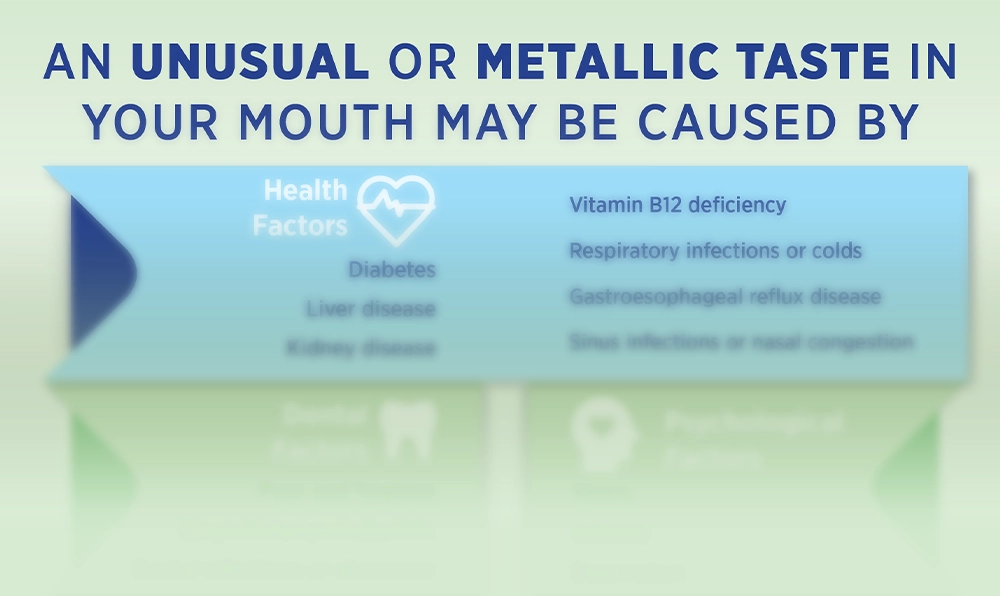


I have been a registered dental hygienist for over a decade. I have had the pleasure of working with amazing patients and educating them on their oral health throughout my career. Recently, I made the conscious decision to branch out within the dental field, choosing to maintain my dental hygiene license, and become a dental educator. With a passion for oral and systemic health, I have seen clinically the direct impact systemic health can have on oral health. I will be extending my knowledge outside of the dental chair into the world and make an impact on the lives of others.
I have been a registered dental hygienist for over a decade. With a passion for oral and systemic health, I have seen clinically the direct impact systemic health can have on oral health. I will be extending my knowledge outside of the dental chair into the world and make an impact on the lives of others. Learn more about Sara, here.

I have been a registered dental hygienist for over a decade. With a passion for oral and systemic health, I have seen clinically the direct impact systemic health can have on oral health. I will be extending my knowledge outside of the dental chair into the world and make an impact on the lives of others. Learn more about Sara, here.
Most of us have never heard the word dysgeusia before, however, many of us have experienced an altered taste that can be described as metallic, sour, or bitter. Metallic taste is a taste disorder medically known as dysgeusia.
Altered taste can be caused by a variety of reasons including chemotherapy, radiation, different medications, COVID-19, GERD, or various other health conditions.
Dysgeusia is an impairment or malfunction of the gustatory organ (sensory organ for taste) which alters the taste of food. Many of those suffering from dysgeusia state that they have an unpleasant or altered taste that is usually metallic or bitter in nature.
People who suffer from dysgeusia may have an increased risk for oral and systemic health issues, especially when the symptoms are persistent and chronic.
An altered, unpleasant taste increases the tendency to add excessive amounts of salts, fats, oils, condiments or sugars to satiate cravings. This may intensify the risk of diabetes, heart disease, obesity, and other serious systemic health complications.
On the other hand, those suffering from severe dysgeusia and metallic taste may experience significant weight loss due to loss of appetite and a decreased pleasure in eating. Unfortunately, this all can lead to poor nutrition.
The risk for oral health diseases and tooth decay rates may also be affected due to an increased consumption of sugars, sweets, and fermentable carbohydrates.


Gustatory receptors are found within the oral cavity and help process different tastes (gustation). Gustatory receptors and tastebuds release neurotransmitters when food is ingested. From there, sensory neurons are activated all the way up to our brain, allowing us to taste and enjoy our food! The pathway from the mouth to our perceived taste is as follows:
The gustatory cortex contains over 10,000 taste buds, each one containing special receptors. Each receptor is attached at the base of the cell that is connected and exposed to the oral cavity via the papilla, these are felt as bumps on the tongue (cranial nerve VII), epiglottis (cranial nerve X), upper palate, and the pharynx (cranial nerve XI).
MetaQil Oral Rinse is first-of-its kind product that alleviates metallic taste in the mouth, providing long-lasting comfort and relief.
Interested in trying MetaQil?
Use Coupon Code
MT20
at checkout
to get 20% OFF your order

When tastants (taste stimulating proteins) dissolve in saliva, they stimulate the gustatory gland and generate one of the taste receptor responses (sweet, salty, umami/savory, bitterness or sourness).
Someone who is suffering from dry mouth may have an altered taste due to salivary dysfunction. This is because tastants stimulating proteins will decrease in correlation due to a decreased salivary flow. Therefore, the sense of taste is impaired and may create the sensation of consuming something with the taste of metal.
When tastants (taste stimulating proteins) dissolve in saliva, they stimulate the gustatory gland and generate one of the taste receptor responses (sweet, salty, umami/savory, bitterness or sourness).
Someone who is suffering from dry mouth may have an altered taste due to salivary dysfunction. This is because tastants stimulating proteins will decrease in correlation due to a decreased salivary flow. Therefore, the sense of taste is impaired and may create the sensation of consuming something with the taste of metal.
Most dysgeusia symptoms that lead to metallic taste originate from the olfactory sensory organ (responsible for smell). The olfactory and gustatory organs are directly correlated via chemosensation, which are specialized pathways that connect the two organs. The olfactory sense organ can contribute to taste dysfunction and even metallic taste that is associated with chronic sinusitis, allergies, and upper respiratory infections.
It is important that those suffering from continuous altered or impaired taste receive a definitive diagnosis from their physician in order to find the underlying cause. Chronic dysgeusia may be a sign and symptom of a neurological disease of the central nervous system. Since the gustatory nucleus stems from the central nervous system, altered/metallic taste may be a neurological symptom.
Dysgeusia leaves many people with oral discomfort and an unpleasant metallic taste. Here are some ways to eliminate that taste:
Working on your metallic taste symptoms can prove beneficial for your overall systemic health. It is crucial to understand the underlying causes of your dysgeusia and reach a point where you can say goodbye to metallic taste!
MetaQil Oral Rinse is first-of-its kind product that alleviates metallic taste in the mouth, providing long-lasting comfort and relief.
Interested in trying MetaQil?
Use Coupon Code
MT20
at checkout
to get 20% OFF your order
CITED WORK:
Maheswaran, T., Abikshyeet, P., Sitra, G., Gokulanathan, S., Vaithiyanadane, V., & Jeelani, S. (2014). Gustatory dysfunction. Journal of Pharmacy and Bioallied Sciences, 6(5), 30. https://doi.org/10.4103/0975-7406.137257
PhysiologyWeb Team. (2013). Tastant – Definition – Glossary – PhysiologyWeb. Physiologyweb.com. https://www.physiologyweb.com/glossary/t/tastant.html
MetaQil is the #1 solution for symptomatic relief of metallic taste. MetaQil’s scientifically designed formula alleviates metallic taste caused by chemotherapy, GERD, and a variety of medications. MetaQil gently cools the mouth and provides instant, long-lasting relief from metallic taste symptoms. It has a mild flavor and does not “sting” the mouth like an every-day mouthwash. Regular use of MetaQil can help patients return to healthy eating and adequate nutrient intake.
For best results, use approximately 5 ml (one teaspoon) of MetaQil®, rinse for 30 seconds, and spit out. MetaQil can be used on an as-needed basis. Use alone or after each time you brush your teeth
Important: If you are pregnant or breastfeeding, please consult your physician before using MetaQil. Do not use MetaQil if you are taking any medications that are contraindicated with the product. Please consult with your physician if you have any concerns regarding the use of this product. Keep out of reach of children.
For more information about MetaQil, click here.
MetaQil is the #1 solution for symptomatic relief of metallic taste. MetaQil’s scientifically designed formula alleviates metallic taste caused by chemotherapy, GERD, and a variety of medications. MetaQil gently cools the mouth and provides instant, long-lasting relief from metallic taste symptoms. It has a mild flavor and does not “sting” the mouth like an every-day mouthwash. Regular use of MetaQil can help patients return to healthy eating and adequate nutrient intake.
For best results, use approximately 5 ml (one teaspoon) of MetaQil®, rinse for 30 seconds, and spit out. MetaQil can be used on an as-needed basis. Use alone or after each time you brush your teeth
Important: If you are pregnant or breastfeeding, please consult your physician before using MetaQil. Do not use MetaQil if you are taking any medications that are contraindicated with the product. Please consult with your physician if you have any concerns regarding the use of this product. Keep out of reach of children.
For more information about MetaQil, click here.
